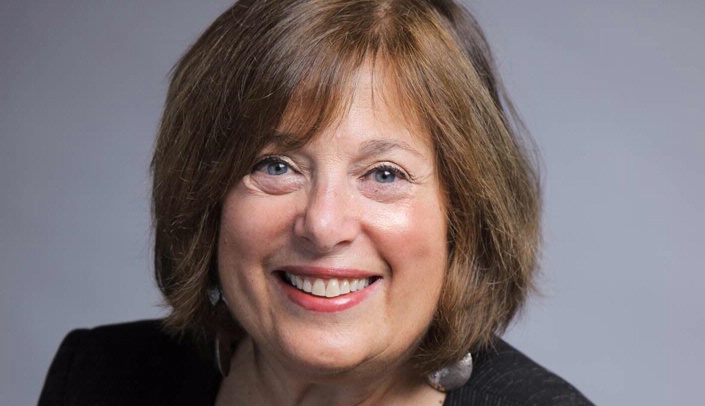What makes your environment feel stressful?
What makes you feel productive, and unproductive?
What makes you want to come to work?
Taking action at UNMC
UNMC has an abundance of resources already in place (see wellness website). But, panelists at the well-being colloquium offered additional thoughts on how to immediately enhance wellness in the academic health science center environment.
“Waiting until someone is drowning to offer swimming lessons is a day late,” said Susan Smith, house officer assistance program manager at UNMC:
Instead, colleagues must look out for one another, leaders must set the tone and example, and everyone must help create an environment where it’s OK to take care of one’s self.
In addition to Smith, the panelists included: Maureen O’Donnell of Arbor Family Counseling; David Carver, Ph.D., executive director of the UNMC Counseling & Student Development Center; Antonia Correa, outreach project specialist in the Center for Reducing Health Disparities at UNMC; and moderator Jonathon Sikorski, Ph.D., director of wellness education at UNMC.
The panelists encouraged faculty, staff and students to:
- Take time to listen.
- Invoke more empathy.
- Connect the dots for each other. Which is more helpful? Nine people who tell you to read a book, or the 10th who hands you the book.
- Greet one another on campus.
- Adjust the ratio of compliments to criticism.
- Get together for lunch.
- Recognize the power of being present in people’s lives.
- Wander — it provides opportunities to meet people.
- Mentor one another.
- Take a “squeegee breath” to help wipe away stress and refocus. Take a big breath. Hold for a count of three. Exhale all the way to your toes sending stress, tension or worry out with your breath. Hold the exhale for a count of three.
- Create a culture where it’s OK to take vacation and recharge.
“This is a journey,” said Dele Davies, M.D., vice chancellor for academic affairs. “As an organization, UNMC is listening.”
Having such conversations — in-person and across each department — will yield more valuable data on resiliency and well-being than any campuswide survey, said Carol Bernstein, M.D., associate professor of psychiatry, vice chair for education in psychiatry and director of residency training in psychiatry at the NYU School of Medicine.
“There’s not a one-size fits all,” said Dr. Bernstein, who shared her expertise during the second annual Elevating the Conversation: Rekindling Your Spark colloquium on Feb. 28.
“We need to know what contributes to stress in the workplace, and leadership has to believe that the care and well-being of the workforce is important.”
Dr. Bernstein lauded UNMC Chancellor Jeffrey P. Gold, M.D., for his leadership on addressing stress, burnout and resiliency among health care professionals, a topic that has long been in the national spotlight but was pushed center stage after two interns in New York City committed suicide within a five-day span in 2014.
Suicide, however, is the tip of the iceberg, Dr. Bernstein said. Below, the surface is a rising epidemic of stress, burnout and depression, which impacts a health professional’s ability to provide outstanding care to patients.
Said Dr. Gold: “We want to do everything we can to protect our learners, our faculty, our staff and the patients we care for on a daily basis. We want people to know it’s not just OK to have this conversation, but appropriate and necessary.”
Even the airline industry reminds us to: “Secure your own oxygen mask before assisting others.”
“Self-care is not in conflict with altruism,” Dr. Bernstein said.
In fact, faculty, staff and students can do more to build resilience and enhance their well-being by focusing attention on:
- Being realistic;
- Exercise, sleep, nutrition;
- Increased opportunities that focus on meaning in medicine;
- Supportive professional relationships;
- Talking things out;
- Hobbies;
- Personal relationships;
- Setting boundaries, particularly in a world that’s connected 24-7;
- Humor;
- Time away from work (consider how to structure your work so that is possible); and
- One’s passion for their work.
